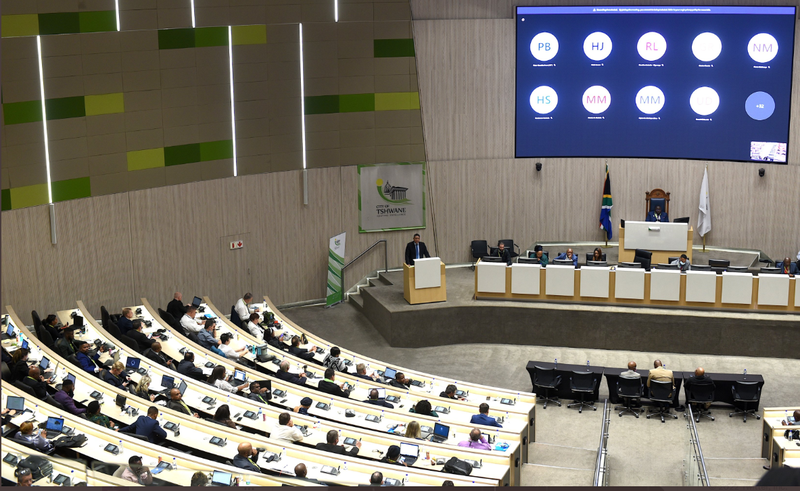Compromising secrecy of vote will invalidate ballot: Terry Tselane
Updated | By Princess Mahogo
Former deputy chairperson of the Independent Electoral Commission Terry Tselane says the Tshwane municipal manager was well within his rights to decline ballots where he felt the secrecy of a vote was compromised.

Tselane’s comments come amid the row over the election of a council speaker in Tshwane.
The DA is threatening legal action after 69 votes cast by the party’s councillors were declared spoilt ballots.
Ballots by DA councillors were marked incorrectly, leading to it being declared as spoilt ballots and paving the way for the African Transformation Movement's Mncedi Ndzwanana to be elected as speaker.
The voting process was held by way of secret ballot.
Tselane says if a voter’s intentions are unclear it will be counted as a spoilt ballot.
“A spoilt ballot is one where you cannot make out how a voter wanted to vote, and it is where a vote is compromised. If the secrecy of a voter is compromised by the vote, that is a spoilt ballot.”
Tselane says a political party can instruct members to follow certain guideline as long as it’s not in violation of the rules of the vote.
“Any person who feels unsatisfied by the decisions of the election officials has the right to approach the appropriate courts. If there is a clear indication that the secrecy of a vote was compromised, then the municipal manager and the council would be protected by the legislation for rejecting such a ballot.”
Meanwhile the City of Tshwane’s Selby Bokaba says the presiding officer was made aware of the 69 invalid ballots.
“The presiding officer who is also the regional supervisor of the IEC presided over the election process that is for voting and counting of the ballot papers. Once counting was done, the presiding officer informed the city manager of the results and indicated that there were 69 ballots that were rejected as these ballots had numbers from 1 to 69 written on them for one particular candidate, giving an indication to the party agents present as to who may have voted for which particular candidate, thus implicitly revealing the identity of the voter and compromising the secrecy of the ballot.
This process as indicated by the presiding officer was accepted and the presiding officer duly announced the results”.
ALSO READ:

Show's Stories
-
Dad tries to have honest conversation with his 2-year-old
"I just wanted to have a conversation with you today...This morning you ...
The Workzone with Alex Jay 1 day, 8 hours ago -
Winter playground returns to Melrose Arch
Take the kids out this weekend, visit the Melrose Arch Winter playground...
The Workzone with Elana Afrika-Bredenkamp 1 day, 8 hours ago